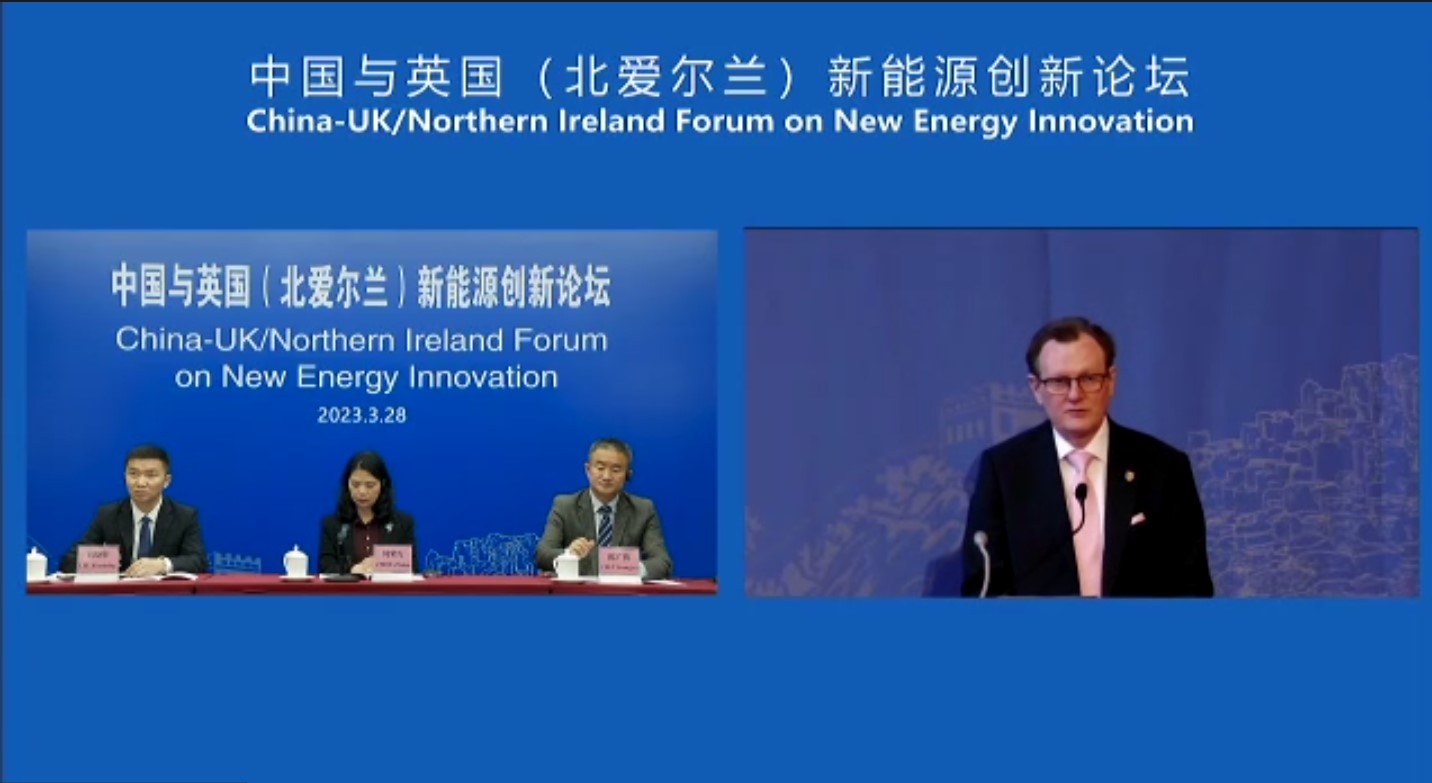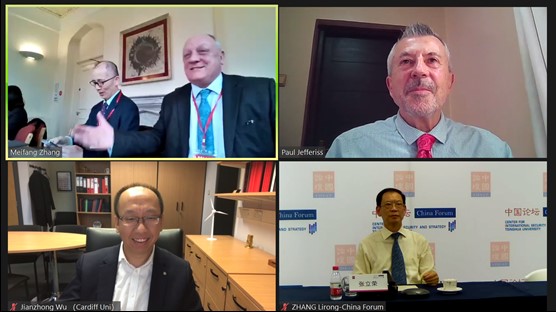On March 28-29, the Chinese Consulate General in Northern Ireland, together with government agencies in Northern Ireland, Queen’s University Belfast and the municipal government of Foshan, co-hosted the China-UK/Northern Ireland Forum on New Energy Innovation. China Forum under the Center for International Security and Strategy at Tsinghua University served as a co-organizer of the event, which was attended by more than 100 government officials, business representatives, and researchers from the two countries.

The opening ceremony, moderated by Ian Greer, president and vice-chancellor of Queen’s University Belfast, featured Zheng Zeguang, Chinese ambassador to the UK; John Edwards, UK trade commissioner to China; Lin Songtian, president of the Chinese People’s Association for Friendship with Foreign Countries; Alex Maskey, speaker of the Northern Ireland Assembly; Bai Tao, mayor of Foshan City; Denis McMahon, permanent secretary at the Executive Office; Christina Black, lord mayor of Belfast; Zhang Meifang, Chinese consul general in Belfast; Matt Moody, British consul general Guangzhou; Margaret Topping, pro-vice-chancellor of Queen’s University Belfast; Wu Chaozhong, vice president of Wuhan University of Technology; and Steve Harper, executive director at Invest Northern Ireland.

Zhang Lirong, secretary general of China Forum, gave a speech on the second day of the forum. He introduced the purpose and relevant efforts of China Forum, and called for cooperation between China and the UK to create better settings for international cooperation in addition to collaboration in new energy and other technical areas, in which think tanks—China Forum included—and media can play a stronger role.
Participants believe that the two countries’ policy goals in promoting green and low carbon development are highly aligned, and looked forward to greater cooperation in hydrogen research and application. In addition, it was agreed that low carbon development requires concerted efforts across governments, businesses, academia and civil society.

